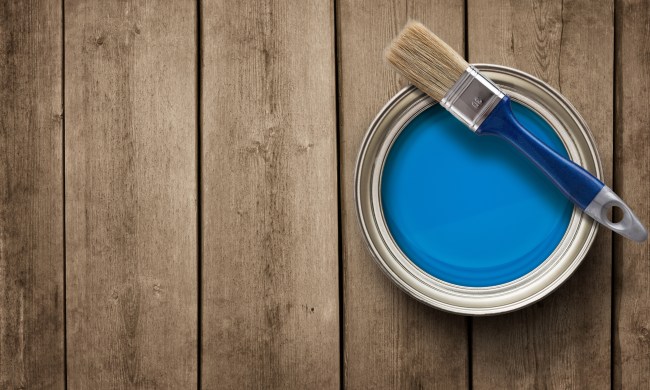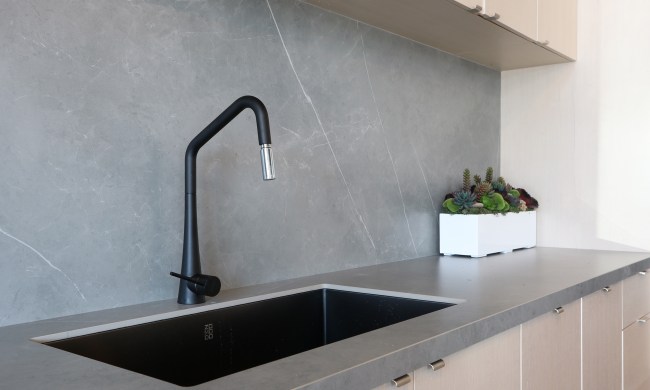Every homeowner will have to make home repairs at one time or another. Whether you have clogged gutters, the dryer needs tuning, you’re adding new hardware to your kitchen cabinets, or simply hanging up a shelf in your living room, you’ll need the right tools to get the job done. So, we’ve compiled a list of some of the essential tools for home projects and repairs, according to experts.
The basic toolkit

The most important item for home maintenance that every homeowner needs is a basic toolkit. Barry Gray, an archeologist, woodworker, and founder of The Tools Square, says that the basic toolkit “should include items such as screwdrivers (both Phillips and flathead), pliers, a hammer, a tape measure, a level, and an adjustable wrench.” These are all simple, affordable tools that any homeowner can easily add to their arsenal.
Carol J. Alexander from Fixr.com, adds that other items like a “utility knife, putty knife, stud finder, wire cutter, extension cord, set of painting supplies, [and] cordless drill” could also be valuable additions to your basic toolkit. Alexander stated, “In addition to the list of basic tools [above], I would put a caulk gun on my list.” These tools tend to get the most use in household projects, so it’s a good idea to have them on hand.
Power tools

Power tools are always a must-have for homeowners who enjoy taking on any DIY project. Forrest McCall, co-owner of the home improvement blog Mama Needs a Project, said, “Drills are extremely convenient tools to have for any homeowner, regardless of the task. Not only are they great for regular maintenance, but also one-off projects, like mounting a television, hanging a picture, and more.”
Don’t forget small essentials
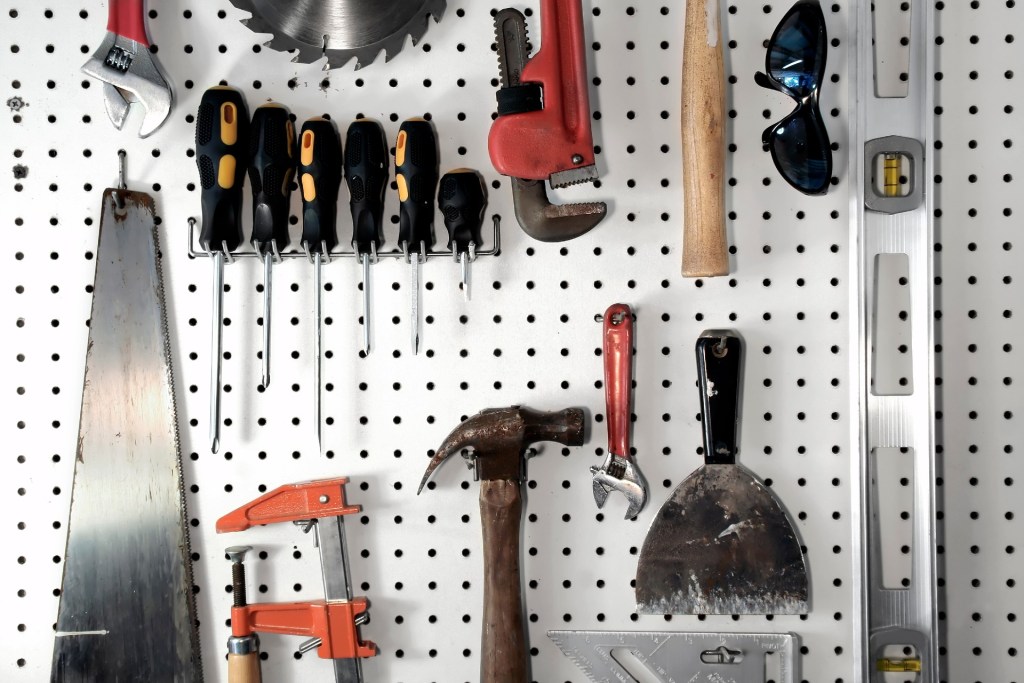
While it’s easy to opt for the basic tools and get excited about power drills to add to your home repair kit, we mustn’t forget about some of the smaller essentials.
Humberto Marquez, a real estate broker at awning.com, stated, “It’s also a good idea to have a variety of fasteners, such as nails, screws, and bolts, on hand for attaching materials together.” The last thing you want is to be ready to mount your TV only to find you have no screws or drywall mounts.
Safety gear
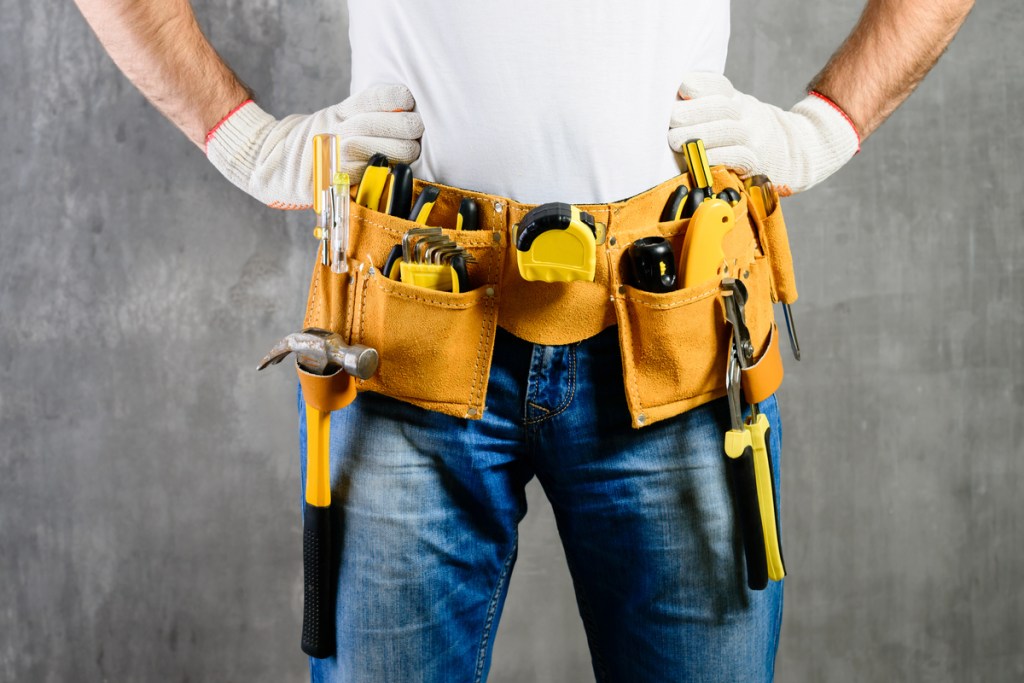
Marquez also emphasizes that homeowners shouldn’t “forget about safety gear, like gloves and goggles, to protect [themselves] while working on home repairs.” Safety is vital, and it’s often overlooked when compiling a comprehensive toolkit. After all, working with power tools can be dangerous, and it’s important to take the necessary safety precautions.
A ladder
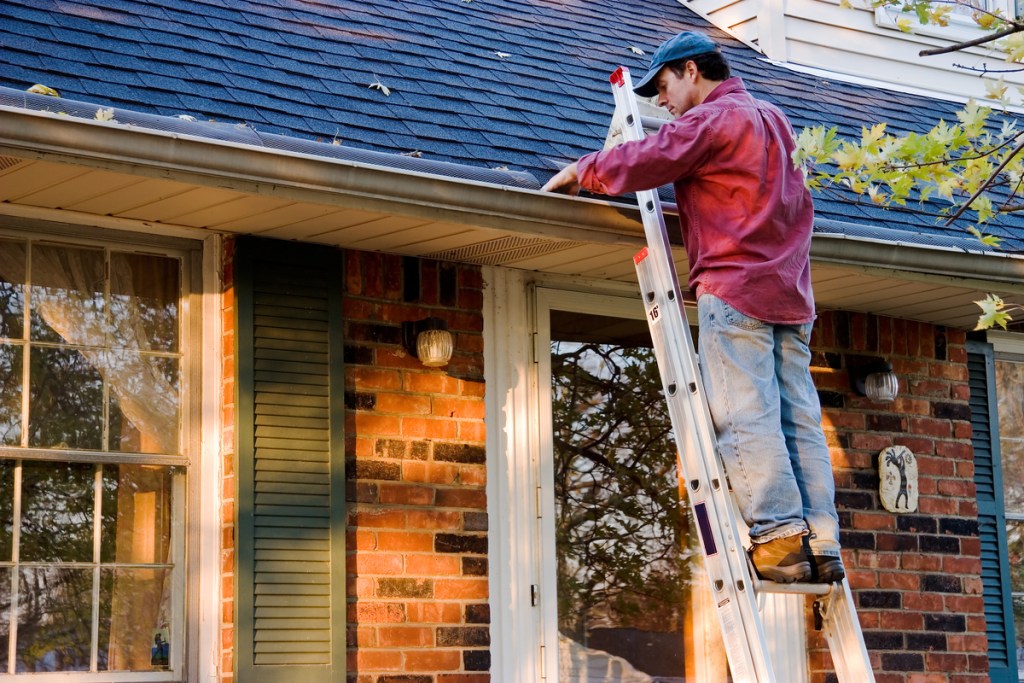
“A ladder is essential for reaching high places and performing tasks, such as changing light bulbs, cleaning gutters, and painting,” said Jeremy R Henley from TheQwikFix. “Look for a ladder with a sturdy, slip-resistant design and a weight capacity that meets your needs.” Ladders are a great tool to have in your garage or shed. While they don’t fit in the toolbox, they are still a fantastic item to have in your basic “toolkit.”
Yard tools and equipment

Even if you aren’t an avid landscaper or gardener, yard tools are a must-have in any homeowner’s arsenal. From weed whackers to lawnmowers, having the right outdoor equipment will make landscaping a breeze.
But don’t limit yourself to power gardening tools. Shovels, trowels, rakes, and even a wheelbarrow can make a world of difference in your landscaping and gardening endeavors. Make sure you have a snow shovel or mini plow for winter, a metal shovel and trowel for planting flowers, and a rake for taking care of fallen leaves. Whether you garden and landscape or not, these tools can come in handy for various outdoor projects.
These tools can set any homeowner up for success. Keep these items in your tool chest or garage so you can be prepared for any home repairs or improvement projects.


